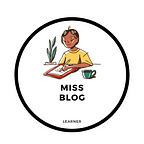Using 4 Tendencies for Our Learning Type
This is a revolutionary method to know how we learn and respond
“I can’t understand this topic. I want to give up,” One day one of my friends at university complained about her problem. We learned in Japanese Language Major and one of the most difficult subjects was Poetry Understanding.
I always read and wrote to learn something, so I didn’t have any issues understanding every subject in my class. My friend was also doing the same, but she couldn’t understand well. It turned out we had different learning types. She was a Visual learner while my type was reading and writing.
If we know about our learning type, it will be easier for us to grasp the knowledge and we can utilize some tools to help us learn better. I read from some articles that most of us have 4 learning types, they are Visual, Auditory, Kinaesthetic, and read/write.
Sometimes we have a combination of those types. Do you know what is your learning type?
Well, I use the knowledge for my reference. After diving into many self-development books, I found ‘The 4 Tendencies’ by Gretchen Rubin who was also well-known as ‘The Happiness Project’ book author.
In 2021, I wanted to use it to understand how to be a good communicator. I learned and read it religiously, and my life changed so much until I could start my journey as a private writing coach who is also using ‘The 4 Tendency’ in my curriculum.
After mentoring many students from 2022 until now, I find another correlation. ‘The 4 Tendencies’ will be useful for us to learn how to learn efficiently and we also can create a learning environment based on our tendency. I’ll explain it briefly.
Now I start to explain from Upholder tendency. People who are Upholder have this trait, they meet outer and inner expectations. So, when they want to learn something, they can be disciplined. It’s also the same when they learn with a teacher or mentor. They can follow other’s rules or expectations. But, they should lower their perfectionism to get the best achievement.
Obliger people will meet outer expectations and resist inner expectations. They are really great to learn with a fixed curriculum created by others. They also can understand more in group discussions. However, when they are asked to learn by themselves, their toxic trait is people pleaser. So they need a supportive circle and learn with a fixed syllabus or in a group.
Then we move to the Questioner. It’s me. Questioner people meet inner expectations and resist outer expectations. When they like a subject, they will learn it without waiting to find a mentor. They love to research and ask people who are smarter or experts. Self-learning is their passion, but they can sink into the research process without real action. They can ignore an expert who cannot convince them in a logical sense.
Last, it’s Rebel. Rebel people resist their inner and outer expectations. They are the source of creativity and they can come out with out-of-the-box ideas. They love challenges, so when someone underestimates them, they will learn harder to prove them wrong. But, when they can master the subject easily, they can start to lose interest so they need challenges in their learning process.
I learn the 4 Tendencies and use it when I face my private writing students. And surprisingly, I can blend with different tendencies and they can learn well. Some of them become my repeating clients to learn different writing subjects.
Now, what is your tendency? You can check your own on the 4 Tendency website, click here. Use it to know your learning type and be surprised with how you can learn better, faster, and fun.
